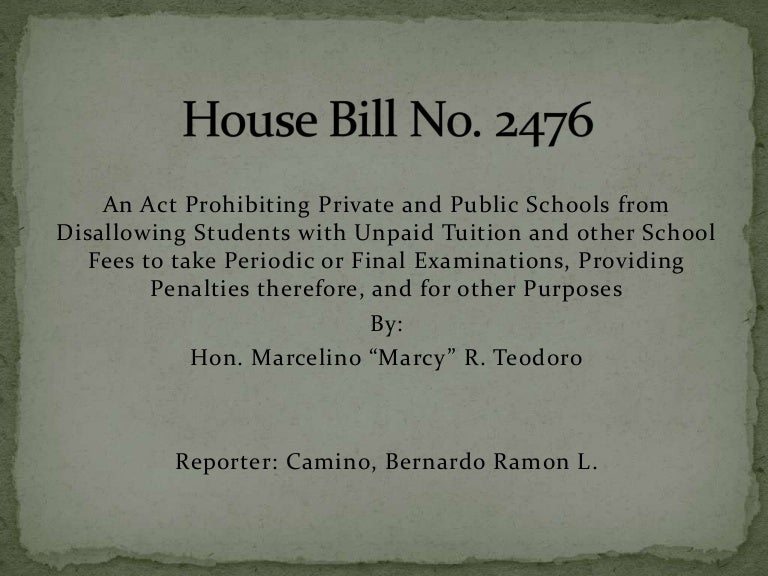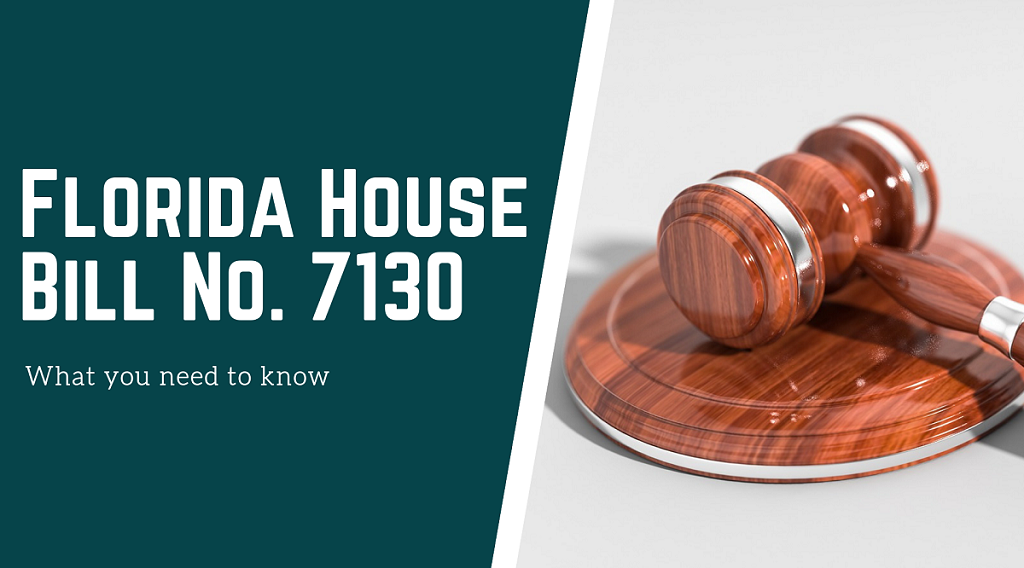Table Of Content
- HB 1569 — Nonprofit Regulation Exemptions
- SB 1688 — Career-Themed Courses
- SB 548 — Public Records Exemption
- Standards required of Florida general education core courses
- Florida bill would end diversity programs, ban majors, shift power at universities
- Florida Senate Bill 266
- Some LGBTQ+ people worry that the COVID-19 vaccine will affect HIV medication. It won’t.

Under the law, such offenses will face steeper penalties, with first-degree misdemeanors being upgraded to third-degree felonies and first-degree felonies being upgraded to a life felony. Current state law doesn’t define “debt relief services” or regulate such service providers, though the federal Telemarketing Act does. Under this law, businesses are prohibited from selling such nicotine dispensers, and retailers that already have one such dispenser will have 60 days to remove the product. Anyone responsible for violating this rule can face a first-degree misdemeanor charge, the law says.
HB 1569 — Nonprofit Regulation Exemptions
The legislation (HB 999) was approved in a 12-5 party-line vote March 13 by the Postsecondary Education and Workforce Subcommittee as Republican lawmakers advanced the measure outlined more than a month ago by Gov. Ron DeSantis. "This is not only about Florida. It is about the heart and soul of public higher education in the United States and about the role of history, historians, and historical thinking in the lives of the next generation of Americans," the AHA added. Andrade on Wednesday took to Twitter after former state Rep. Carlos Guillermo, an opponent of the legislation, noted that Andrade was the only Republican who offered any debate or explanation on the bill, writing "It's tough to debate while being shouted down and threatened by angry liberals… DEI advocates HATE open debate." "Those student groups may continue to operate how they see fit currently, subject only to the policies and procedures that are content-neutral that apply to all student organizations on campus," he added. Hughley outlining some of the other programs thought to be at risk even went viral on social media. [P]oor performance, negligence, inefficiency or inability to perform assigned duties, insubordination, violation of any applicable law or rule, conduct unbecoming a public employee, misconduct, drug abuse, or conviction of any crime.
UM ‘can’t wait until we’re the targets’: Faculty speak out against Florida higher ed bills - Miami Herald
UM ‘can’t wait until we’re the targets’: Faculty speak out against Florida higher ed bills.
Posted: Tue, 25 Apr 2023 07:00:00 GMT [source]
SB 1688 — Career-Themed Courses
If Florida’s House Bill 999 passes, students at the state’s public colleges and universities would be prohibited from majoring or minoring in these academic disciplines as well as in related fields, including queer theory, critical race theory, feminist theory and social justice. A state university is prohibited from using diversity, equity, and inclusion statements, critical race theory rhetoric,or other forms of political identity filters as part of the hiring process, including as part of applications foremployment, promotion and tenure, conditions of employment, or reviewing qualifications for employment. The law, which would ban multiple minority race studies as well as some parts of gender studies, is seen by both supporters and opponents as part of the manifestation of DeSantis' wide-reaching educational proposals. Akin to the Florida Parental Rights in Education Act (or the Don't Say Gay Act as described by opposition and protestors), SB 266 and HB 999 also became subject to widespread backlash from students, with protests beginning to be staged at high schools and state universities within days of its initial introduction into the Florida legislature.
SB 548 — Public Records Exemption
The original House version would've prevented subject matter that "defines American history as contrary to the creation of a new nation based on the universal principles stated in the Declaration of Independence.” That part has since been removed from the House version, but the Senate version — SB 266 — includes that language. Other changes since the bill’s filing assure that students receiving fee waivers will continue to receive them until graduation, regardless of whether their program was discontinued after enrollment. The Florida Legislature has made significant edits to the sweeping higher education reform bill between its original filing Feb. 21 and its most recent update March 15 — notably concerning majors and minors that will be removed if the bill becomes law.

"Let's stop going down this dangerous road of censorship and limiting free speech in our public institutions of higher learning and get back to solving the problems that Floridians ask for," Nixon tweeted Monday. Another course, titled Gender and Climate Change, is described as "exploring how gender inequality across the globe is related to environmental damage and climate change and examines feminist, indigenous, and LGBTQ climate justice movements alongside the gendered implications of global policy and practices related to the environment." A course titled Philosophy of Race, Class, and Gender is described as "a study of selected contemporary philosophical, literary, and journalistic discussions of questions regarding race, class, and gender with a particular emphasis of these discussions in the United States." "Frankly, faculty that is paid by the university may not be able to be faculty advisers to these groups. They won't be," Hinson said. "Even if they will, this is going to intimidate them and create a chilling effect."

Programs that show preferential treatment based on race, gender or other identifiers are also prohibited. Educational gag orders — which is how free expression advocacy group PEN America describes legislation that limits lessons on certain topics — typically target K-12 schools. Most states have introduced such bills over the past two years, and House Republicans last month passed the Parental Bill of Rights Act, which echoes legislation filed at the state level and purports to give parents a say in their children’s education. This includes access to learning materials, school board meetings and conferences with teachers — rights educators note that parents already enjoy. While student groups aren’t expected to be impact, Andrade explained that certain majors dealing in critical race theory — which he defined as the notion that “racism is baked into every aspect of society today” — would be pulled if the bill were to pass.
The state should not subsidize fields of studies that “are not based in fact,” he said. And he said the boards of trustees should be tasked with hiring and curriculum — something he believes falls under their mandate of setting standards for the university. Faculty are already telling their graduate students not to teach in states where there’s no academic freedom, Mulvey said, and some institutions in these states are seeing fewer donations. Over the past year, the University of Wyoming has withstood multiple attempts by lawmakers to defund its gender studies program, most recently in the form of a budget amendment in the Wyoming House that failed in February.
Florida Bill Would Enforce Sweeping Bans at Universities - TIME
Florida Bill Would Enforce Sweeping Bans at Universities.
Posted: Sat, 25 Feb 2023 08:00:00 GMT [source]
Gov. Ron DeSantis supports the passing of the bill to ban all spending designated to “promote, support, or maintain” the subjects that supporters describe as “political identity” filters. DeSantis’ Jan. 31 announcement included only basic information on the “civics institutes” he proposed at three of the state’s 12 public universities, but Andrade’s bill offers new details. “The president and the board are not required to consider recommendations or opinions of faculty of the university or other individuals or groups,” the bill says. It also would make presidents responsible for conducting performance evaluations of all employees making over $100,000.
Some LGBTQ+ people worry that the COVID-19 vaccine will affect HIV medication. It won’t.
During a Facebook Live event, another state senator, Shervin Jones, argued that the bill is "so vague that HBCUs [historically Black colleges and universities] or other institutions …. who have Black fraternities and sororities on their campuses can practically say we will no longer be supporting you on our campuses based off of this law." A member of a sorority herself, Hinson said her interpretation of the bill is that it could also impact the way Black sororities or fraternities operate on campus. [...] Hinson said the bill's language may have a larger impact on advisers of any student-led groups or activities tied to diversity, equity and inclusion.
Broadly speaking, the bill increases the authority of the Florida Board of Governors (the governing body of Florida's state university system) to regulate state-funded higher education by terminating the tenure of professors and imposing limits on programs related to "Critical Race Theory" and DEI programs. In addition, the law allows the Florida DCF to distribute federal funds to young adults under this program in the event of a state or national emergency, even if they don’t meet the PESS or Aftercare requirements. The United Faculty of Florida, the statewide union of college and university professors, also opposes the proposed restrictions on curriculum.
Historically, autocratic regimes have set their sights on cultural centers, the arts, and colleges and universities, because they see these places as threats to their power and control. The events unfolding in Florida are state-sponsored efforts to stifle ideas, silence debate, and limit the autonomy of educational institutions whose faculty, staff, students, or administrators may disagree with the party in power. Faculty, advocates of academic freedom and anyone interested in preserving our democracy must fight these draconian measures with everything we have—in Florida and in every other state where they appear. With the introduction of HB 999, the Florida legislature—at Governor DeSantis’s urging—has doubled down on its attacks on academic freedom with a bill that would effectively silence faculty and students across the ideological spectrum and purge whole fields of study from public universities. This bill substitutes the ideological beliefs of those in power for the freedom that is necessary for colleges and universities to serve the common good and function as intellectual centers where young people succeed and where the ideas that drive our country’s economy and democracy are ignited. HB 999 bans state higher education institutions from funding DEI programs, bans funding for federal- or state-funded organizations that focus on specific racial minorities or sexual orientations, and bans majors, minors and courses that use "critical theory" of some kind.
TALLAHASSEE, Fla. – Florida House Bill 999 aims to target diversity, equity, and inclusion programs, also known as DEI, and the study of critical race theory at all of the state’s public universities, according to News 6 partner WPLG. General education core courses may not suppress or distort significant historical events or include a curriculumthat teaches identity politics, such as critical race theory, or defines American history as contrary to the creation of a new nation based on universal principles stated in the Declaration of Independence. In the letter, the association's members express "horror" — instead of the "usual concern" — that that the legislation would give politically-appointed boards the power to dictate how American history is taught at the state’s universities, instead of leaving decisions about course content to faculty and administrators. They describe it as a "blatant and frontal attack on principles of academic freedom."
Colleges and universities are usually the places where students get to explore a variety of viewpoints and political beliefs—often for the first time. But one expert says that academic freedom would become scarce at Florida’s public universities if a new bill to regulate higher education in the state passes. He signed the Parental Rights in Education bill to limit education about topics like gender identity and sexual orientation in public schools, and the House Bill 1467, which seeks to cut back on “inappropriate” and “pornographic” books available to students in schools. Critical theory refers to examining social movements and systems of oppression, according to the Stanford Encyclopedia of Philosophy. Some banned critical theory programs include critical race studies, radical feminist theory and queer theory, according to the bill. University of Florida Faculty Senate chairperson Amanda Phalin tweeted over the weekend that the bill would “upend the successful model” of higher education in Florida and could threaten universities’ accreditation, which would result in a loss of federal funds used for student scholarships and faculty grants.
The bill would place control of core curricula and institutional mission statements entirely in the hands of political appointees. It would limit or ban students’ ability to pursue certain majors or areas of study. Simply put, it would make Florida’s colleges and universities into an arm of the DeSantis political operation. Among other things, the bill would ban majors and minors that require courses in subjects related to critical race theory, gender studies and intersectionality. It would also prohibit general education core courses from including critical race theory in the curriculum. While the original bill prohibited degree programs related to critical race theory, gender studies and intersectionality, the newer version replaces that language by prohibiting critical theory outright.

No comments:
Post a Comment